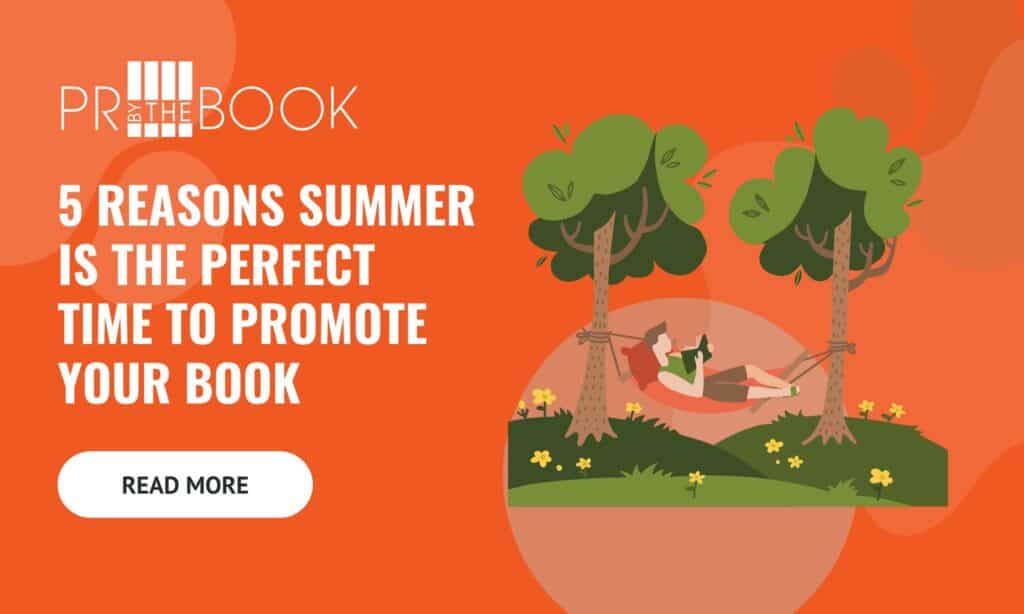Getting Testimonials
-
Contributor
- Reading Time: 10 Minutes

SHARE
Secure testimonials early for effective book promotion. Learn how to get reviews from readers, editors, and influencers to maintain relevance post-publicity campaign.
Procuring testimonials is one aspect of a publicity campaign that PR by the Book handles for authors who start their campaign early enough – approximately four months (or more) before pub date.
For purposes of this article, I divide reviews into two groups: customer and editorial. Customer reviews are reviews written by readers that have read your book. On Amazon, these include scores indicated by small orange stars.
Editorial reviews can be broken down into two other categories:
1. Trade and book reviews. Someone reads your book, writes a review, and the review is published. For most author-publishers, the leading options are Kirkus and Foreword Reviews.
2. Testimonials, traditionally called blurbs and sometimes called endorsements. This is our topic this month, so let’s dig in.
Note that you can also use a portion of a book review as a testimonial; this is called a pull-quote.
What are Testimonials?
Testimonials go by many names in publishing—blurbs, endorsements, review quotes, and editorial reviews—and they all mean the same thing: Someone influential, who has relevance to the audience of your book, has spoken highly about your book and/or you.
Why do I use the term testimonial instead of the more traditional term, blurb? Because too often nowadays, people misuse the term “blurb” to mean a book’s description.
Sources of Testimonials
The source of the testimonial can be a reader or another author, or it can be something written specifically for this purpose by a noteworthy individual or a member of a noteworthy organization. “Noteworthy” is in the eyes of your readers. If they don’t associate the subject matter with the name, the organization, or the qualifications of the person writing the review, using a quote from the review could do more harm than good.
Here’s a list of testimonial sources I pulled from my workbook, Countdown to Book Launch:
- Writers and instructors you met at writing conferences.
- Social media connections such as those via LinkedIn, Facebook, and Twitter.
- People that have written testimonials for books similar to yours. (Visit the book page of a book similar to yours on Amazon and look in the editorial reviews section for that book’s blurbers.)
- Celebrities that have publicly expressed a passion or interest about the topic of your book, or whose background is relevant to your book.
- Authors of similar books.
- Authors who share the same agent or publisher.
- The media or influencers.
- Organizations—businesses, associations, not-for-profits, religious organizations—that are aligned with the subject matter of your book. LinkedIn is a terrific resource for this.
- The acknowledgments in books related to yours. Who did the author thank? Some of these individuals may also be interested in your book.
- Your personal network of friends and family, who may be familiar with the people, or at least the types of people, you are interested in reaching.
Ideally, if you’re approaching an author, you have read one or more of their books. Even better, you have written a review and are engaging with them on social media. For more on this, read this article by author Barbara Linn Probst on JaneFriedman.com.
What State Should Your Book be in Before Soliciting Testimonials?
It depends on who you want to approach and how well you know the person. If it’s someone that knows you well, they may not even care to see your book! If it’s someone you don’t know, and they are well-known, you’ll probably need a finished book.
Here are the various forms and formats your book will take during the publishing process and in the rough order of availability for use to solicit a testimonial:
- Your manuscript in Word after it has been copyedited.
- A PDF of your book’s interior file before it has been proofed.
- A PDF that has been proofed.
- A printed book. This book can be labeled as an advance reader copy, or it can be a finished book.
- Your book in EPUB or Mobi eBook format.
- Your book in audiobook format.
Given all these forms of your book, which should you send? You send the format that the person requests. In most cases, this is going to be a PDF or printed book in some state of completion.
Of the formats on this list, most potential endorsers won’t be troubled if you don’t have an audiobook.
Timing and Process
- Begin thinking about potential testimonial writers as you are writing your book. It doesn’t always have to be a specific individual; write down important organizations as well.
- Refine the list as you finish your book. Get a name and contact information. If you don’t know them, do your homework and find a way to approach them about their possible interest.
- When you have a general idea of when your ARC will be ready, start contacting prospects a good 30–60 days in advance of its availability. This is when you want to ask for their preferred reading format. (Note that I didn’t say 30–60 before your release date.) This process is networking 101.
Etiquette, Tips, and the Unwritten Rules
- Never mail a book without getting permission to do so. It’s presumptuous, and these days, it will end up in the trash. Write a tight synopsis and use that instead. *Since COVID-19 concerns, Kirkus Reviews continues to refuse printed books; they want a PDF.
- I’m all for aiming high, but consider starting locally or with B- or even C- level influencers. They will be easier to reach, and if they write a testimonial, perhaps you can use that in your pitch to a higher-level influencer with more followers.
- Send the format they want, and never expect anyone to pay you for the book or for shipping.
- What’s the right number of testimonials? At least one. Beyond this, a handful are helpful. But don’t make the mistake I see some authors make and spend all your time on this process at the expense of other marketing. It’s quality over quantity, and there are many other tasks that need to be done.
- No matter what they say or send back, be gracious and appreciative. Never try to rush someone. Remember, you can choose how and where to use it.
How should you prepare your ARC? And what about formatting, editing, and using what you receive? This is part one of a three-part featured article series about getting and using editorial reviews using advance reader copies (ARCs). Keep reading additional installments in the AuthorPro Newsletter.
About David Wogahn
This article was written by David Wogahn, president and founder of AuthorImprints. AuthorImprints is an award-winning, professional self-publishing services company assisting clients worldwide. They have helped more than 100 authors, businesses and other organizations launch self-publishing imprints which, in turn, has resulted in the successful publication of more than 300 books, and counting. Learn more at www.authorimprints.com.
Are you an author looking for help with your Book Publicity? Schedule your FREE Discovery Call today!
Looking for more Book Publicity Tips? Check out:
WANT MORE?
Contributor

5 Reasons Summer is the Perfect Time to Promote Your Book
Discover why summer is ideal for book promotion! From reading roundups to vacation reads, here are 5 reasons to showcase your book during the sunny season.

The Essential Father’s Day Book Gift Guide
Looking for gift ideas for the big guy? Check out our diverse Father’s Day Book Gift Guide–perfect for dads who love gripping novels, inspirational memoirs, or practical guidebooks. Find the ideal read!

Making the Most of Your Goodreads Author Program Profile
Discover how joining and optimizing your Goodreads Author Program profile can boost your book’s visibility, engage readers, and enhance your author platform.
WANT MORE?
Contributor

5 Reasons Summer is the Perfect Time to Promote Your Book
Discover why summer is ideal for book promotion! From reading roundups to vacation reads, here are 5 reasons to showcase your book during the sunny season.

The Essential Father’s Day Book Gift Guide
Looking for gift ideas for the big guy? Check out our diverse Father’s Day Book Gift Guide–perfect for dads who love gripping novels, inspirational memoirs, or practical guidebooks. Find the ideal read!

Making the Most of Your Goodreads Author Program Profile
Discover how joining and optimizing your Goodreads Author Program profile can boost your book’s visibility, engage readers, and enhance your author platform.


